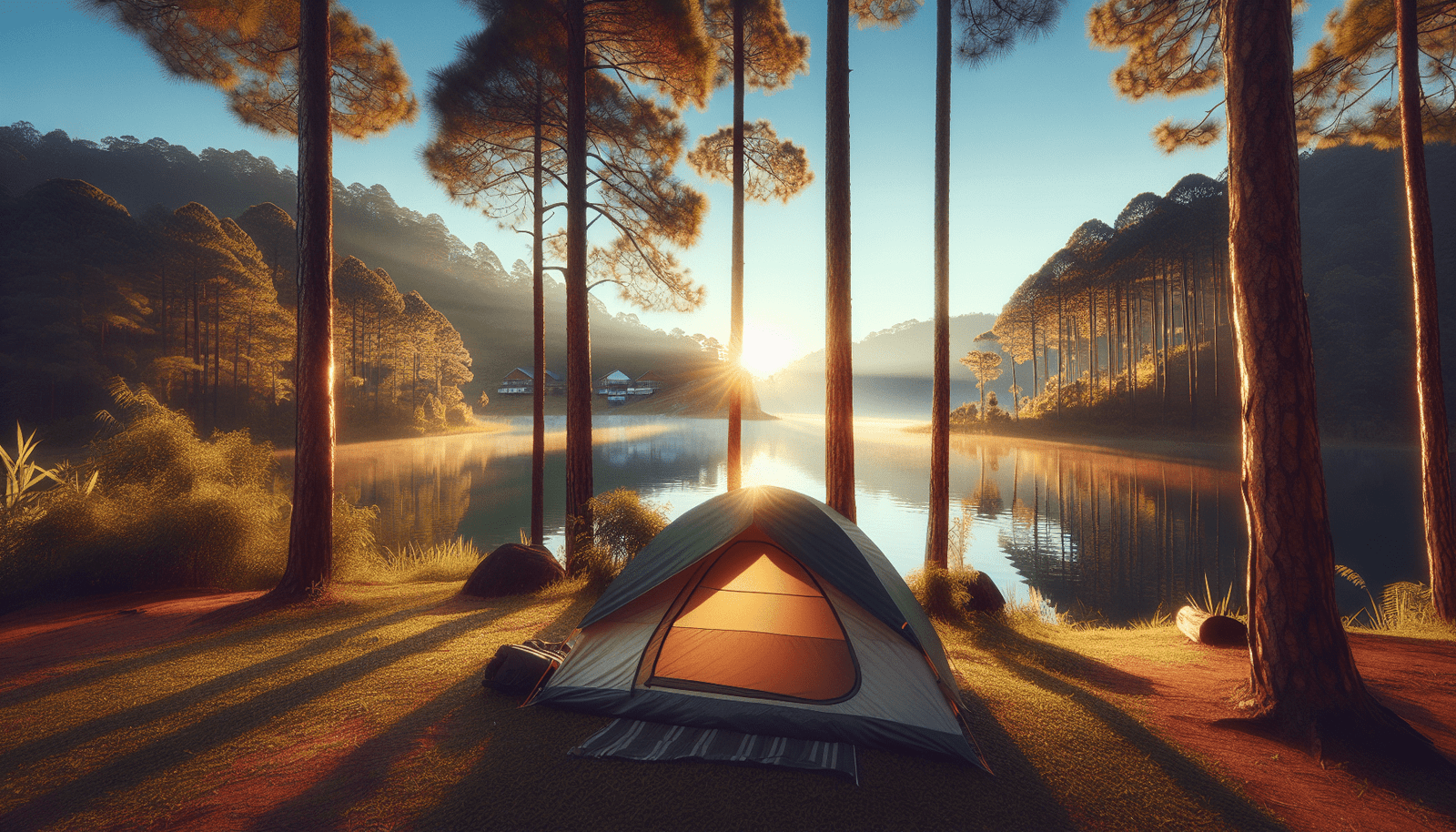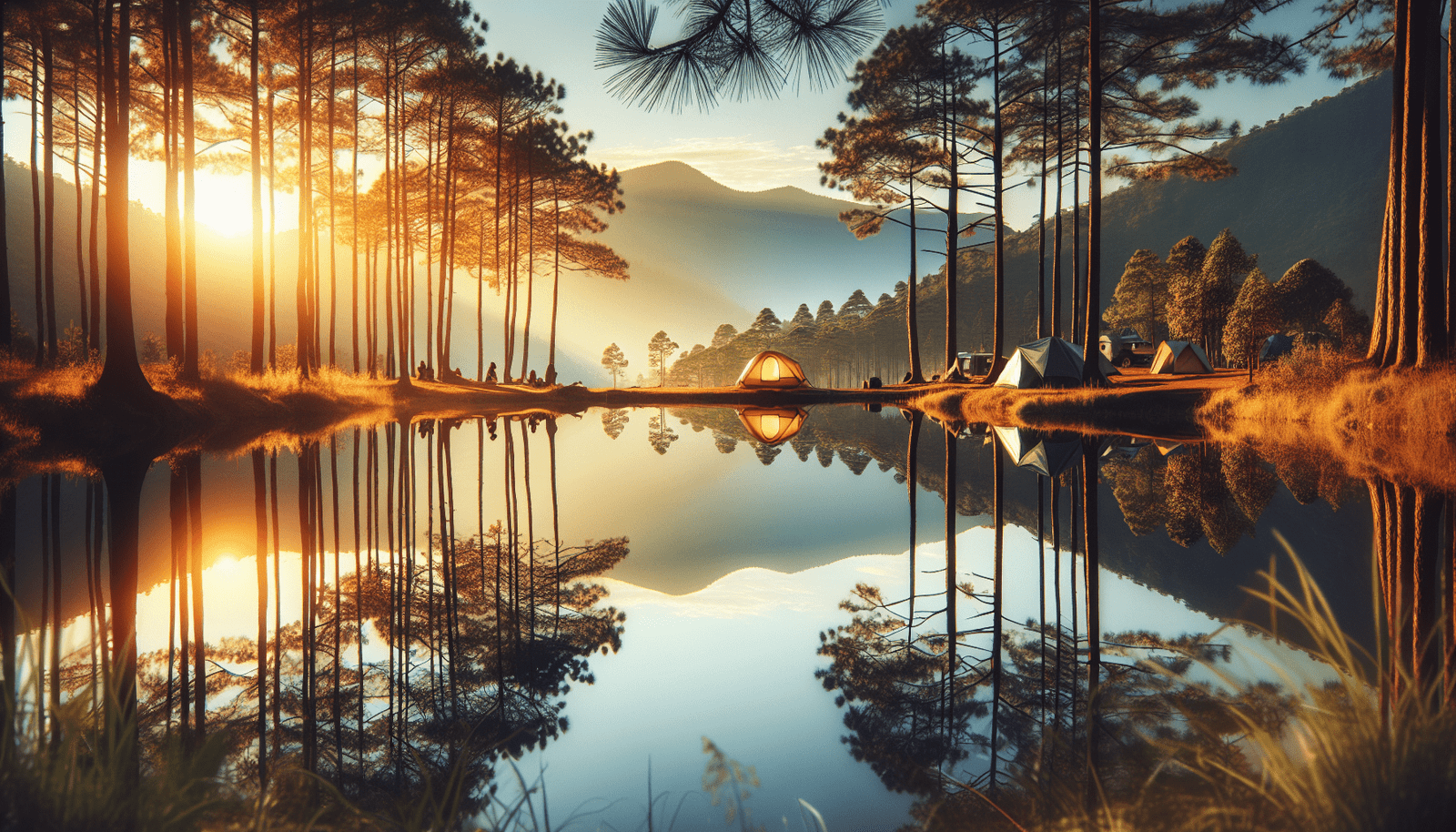When it comes to picking the perfect camping site, there are a few key factors you’ll want to consider to ensure a memorable and enjoyable outdoor experience. First, think about the location and scenery—do you prefer a tranquil lakeside spot or a peaceful forest nook? Accessibility is also crucial, so check whether the site is easily reachable by car or requires a hike. Don’t forget safety and amenities; look out for level ground, availability of drinking water, and proximity to emergency services. By keeping these elements in mind, you’ll be well on your way to finding a campsite that matches your needs and desires.
How To Pick A Camping Site?
How to Pick a Camping Site?
Ever asked yourself, “How do I pick the perfect camping site?” Whether you’re a seasoned camper or new to the world of tents and campfires, choosing the right spot can make or break your outdoor adventure. But don’t worry, we’re here to help you navigate the ins and outs of picking the ideal camping site!
Understanding Your Needs
Before selecting a camping site, it’s important to understand what you want from your camping experience. Ask yourself these questions to get started:
- What type of camping am I interested in?
- How long do I plan to stay?
- What activities do I want to do?
- What are my “must-have” amenities?
Meet your needs and expectations to guarantee a memorable camping experience.
Types of Camping Sites
Let’s dig into the various types of camping sites to help you figure out which one best suits your needs. Each type offers different levels of convenience, amenities, and opportunities for adventure.
Established Campgrounds
These are often managed by parks or private companies and offer various amenities such as restrooms, showers, and picnic areas. They’re perfect if you want a hassle-free experience.
- Pros: Typically safe, convenient, and equipped with essential amenities.
- Cons: Can be crowded and sometimes less scenic.
Wilderness Camping
This requires you to be entirely self-sufficient. Wilderness sites are usually far from amenities, offering a raw and intimate outdoor experience.
- Pros: Immersive and offers maximum privacy.
- Cons: Requires a significant amount of preparation and experience.
RV Camping
Ideal for those who want a wilderness experience but with the comforts of home. RV campsites usually offer hookups for electricity, water, and sewage.
- Pros: Comfortable and convenient.
- Cons: Can be more expensive and less flexible about location.
Backcountry Camping
Typically involves hiking to a remote location. This form of camping is for the adventure-seekers who want to disconnect from the modern world.
- Pros: Offers solitude and stunning natural beauty.
- Cons: Requires careful planning and physical endurance.

Factors to Consider When Picking a Camping Site
Choosing a camping site involves more than just picking a spot with a pretty view. Here are key factors you’ll want to consider:
Location
Picking the right location is crucial. Think about the following:
- Proximity: How far is it from your home? Do you want to drive a long distance?
- Scenic Beauty: Are you looking for mountains, lakes, forests, or all of the above?
- Accessibility: Can it be easily reached by car, foot, or kayak?
Weather Conditions
The weather can make a significant impact on your camping experience. Research the weather patterns of the area you plan to camp in. Check for:
- Temperature Extremes: Know your tolerance levels and prepare accordingly.
- Rainfall: Nobody wants a soggy camping experience unless you’re up for it.
- Wind Conditions: High winds can be dangerous and uncomfortable.
Safety
Always prioritize safety. Be aware of:
- Wildlife: Understand the types of animals you might encounter and how to handle them.
- Natural Hazards: Look out for steep cliffs, unstable ground, and waterways.
- Personal Safety: Keep your campsite secure and be aware of other campers.
Regulations and Permits
Make sure to check local regulations and whether you need a permit. This can include:
- Fire Regulations: Know if and where you’re allowed to have a campfire.
- Camping Permits: Some areas require you to obtain a permit in advance.
- Fishing and Hunting: If you’re planning these activities, always check the rules.
Amenities
Decide what amenities you need or want. Here’s a quick comparison to help you:
| Amenities | Established Campgrounds | Wilderness Camping | RV Camping | Backcountry Camping |
|---|---|---|---|---|
| Restrooms | Available | Not available | Available | Not available |
| Showers | Often available | Not available | Available | Not available |
| Water | Often available | Must bring/purify | Available | Must bring/purify |
| Electricity | Sometimes available | Not available | Available | Not available |
| Parking | Available | Usually not near site | N/A | Not available |
Scouting the Perfect Spot
Once you’ve narrowed down your options based on the type of camping and considerations, it’s time for the exciting part—scouting the actual spot!
Level Ground
Make sure you choose a level area for your tent or RV. A flat surface will ensure a comfortable sleep and a stable setup.
Proximity to Water
Being close to water can be both a blessing and a curse. Consider the following:
- Pros: Easy access for drinking, cooking, and cleaning.
- Cons: Increased exposure to bugs and dampness. Be sure to camp at least 200 feet away to minimize impact.
Exposure to Elements
Your site should provide some natural shelter from wind and sun. Look for:
- Natural Windbreaks: Trees and hills can offer protection from the wind.
- Shade: Ensure there are trees or other natural covers for shade.
Distance from Trails and Other Campers
Privacy can greatly impact your camping experience. If solitude is what you seek, make sure to:
- Choose a Less Frequented Area: This will give you more privacy.
- Avoid Main Trails: Setting up camp too close to main trails can invite unwanted visitors.

Leave No Trace Principles
Regardless of where you decide to camp, always adhere to Leave No Trace principles. These will ensure you minimize your environmental impact and preserve the site for future campers.
Plan Ahead and Prepare
Knowing the regulations and conditions of the area will ensure a safe and enjoyable trip.
Travel and Camp on Durable Surfaces
Stick to established trails and campsites whenever possible. This helps protect the environment.
Dispose of Waste Properly
Pack out all trash and leftover food. If possible, follow guidelines for burying human waste to minimize impact.
Leave What You Find
Respect nature; don’t take rocks, plants, or other natural or cultural artifacts.
Minimize Campfire Impact
Only use established fire rings and keep fires small. Extinguish them completely before leaving.
Respect Wildlife
View animals from a distance and never feed them. Store your food properly to avoid attracting wildlife.
Be Considerate of Other Visitors
Keep noise levels down and respect other campers’ space and privacy.
Seasonal Considerations
Seasons play a significant role in your camping experience. Here’s what you need to consider for each season:
Spring
- Pros: Fewer bugs and milder weather.
- Cons: Possible muddy conditions and unpredictable weather.
Summer
- Pros: Long days, warm weather, and more activities available.
- Cons: Crowded sites and more bugs.
Fall
- Pros: Beautiful foliage and fewer crowds.
- Cons: Colder nights and potentially unpredictable weather.
Winter
- Pros: Ultimate solitude and unique experiences like snow camping.
- Cons: Extreme cold and challenging conditions.
Advanced Tips for Seasoned Campers
If you’re a seasoned camper looking to elevate your experience, here are some advanced tips:
Utilize Technology
There are various apps for weather updates, star maps, and even plant identification to enhance your experience.
Try Group Camping
Group camping can be a great way to share the adventure while ensuring safety.
Off-the-Beaten-Path Locations
Challenge yourself by exploring less popular but equally beautiful sites, away from the crowds.
Outdoor Skills
Enhance your outdoor skills like fire-making, navigation, and wildlife tracking to make your trips more fulfilling.
Common Mistakes to Avoid
Even seasoned campers can make mistakes. Here are some common ones and how to avoid them:
- Ignoring Weather Forecasts: Always check the weather before heading out.
- Not Checking Regulations: Make sure you’re aware of all permits and regulations.
- Packing Too Much or Too Little: Strike a balance in your packing by listing essentials based on your needs.
- Poor Site Selection: Don’t settle for the first spot you find. Scout around.
- Leaving Food Unsecured: Always secure your food to prevent unwanted wildlife visits.
Final Thoughts
Picking the perfect camping site doesn’t have to be daunting. By understanding your needs, considering essential factors, scouting the area properly, and adhering to best practices, you’re well on your way to an unforgettable outdoor adventure. Take the time to plan, be mindful of your surroundings, and don’t forget to enjoy every moment.
Happy camping!
